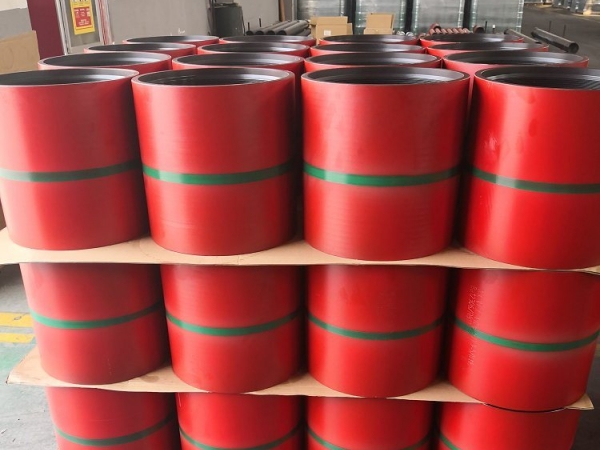Oil casing coupling is an important accessory used to connect oil casing in the petroleum industry. Its quality requirements are crucial to ensuring the safety and effective production of oil wells. Today, we will introduce the quality requirements of oil and casing couplings in general.

Material quality:
Oil and casing couplings are usually made of high-strength, corrosion-resistant alloy steel. Materials must comply with relevant international or industry standards, such as API (American Petroleum Institute) specifications.
Strength and pressure resistance:
Oil and casing couplings must have sufficient strength and pressure resistance to cope with the challenges of oil well depth and formation pressure. Products should be able to withstand the various forces and pressures found in the oil well environment, ensuring the integrity of the wellbore.
Dimensional accuracy:
The size of the oil casing coupling must comply with the design specifications to ensure that it can accurately connect the oil casing and form a reliable seal. Dimensional accuracy is critical to the proper operation of the entire well system.
Corrosion resistance:
Due to the presence of some corrosive chemicals in the oil well environment, the oil and casing couplings must have good corrosion resistance to extend their service life and ensure the reliability of the connection.
Welding quality:
If the oil and casing coupling needs to be connected to other components by welding, the quality of the welding becomes a key factor. The welds must be uniform, strong and comply with relevant welding standards and specifications.
Surface treatment:
The surface of oil and casing couplings may require anti-corrosion treatment to protect against corrosion and other environmental effects. This may include coatings, plating or other protective measures.
Identification and traceability:
Oil and casing couplings must be clearly marked and traceable so that their manufacturing information, production batches and quality control data can be tracked.
Standards compliant:
The manufacturing and testing of oil and casing couplings must comply with relevant international or industry standards, such as API 5CT (American Petroleum Institute Specification), to ensure product quality and reliability.